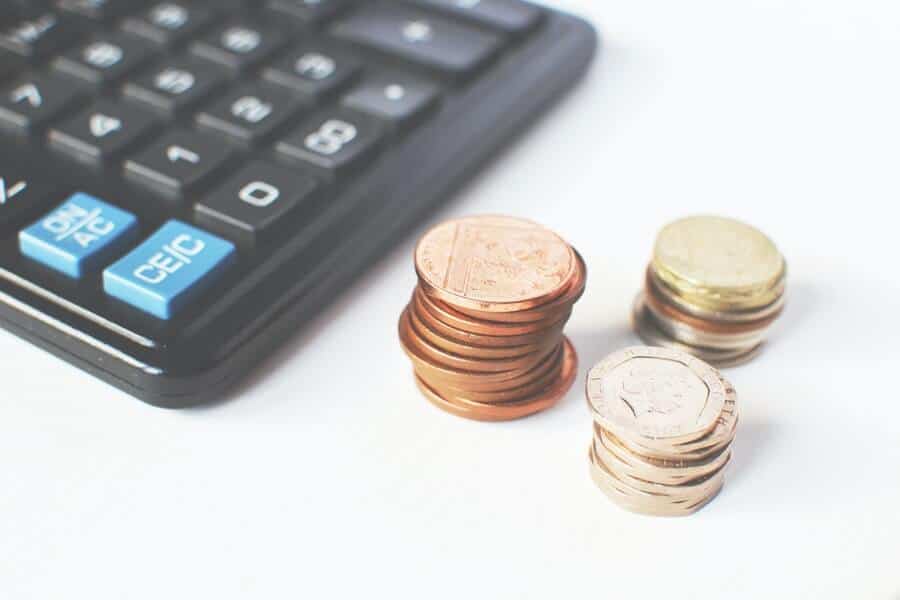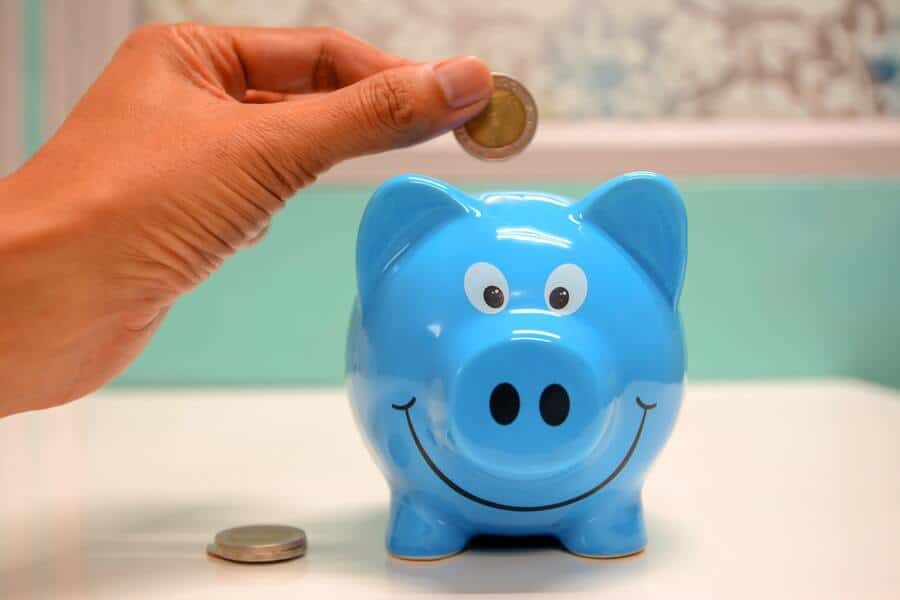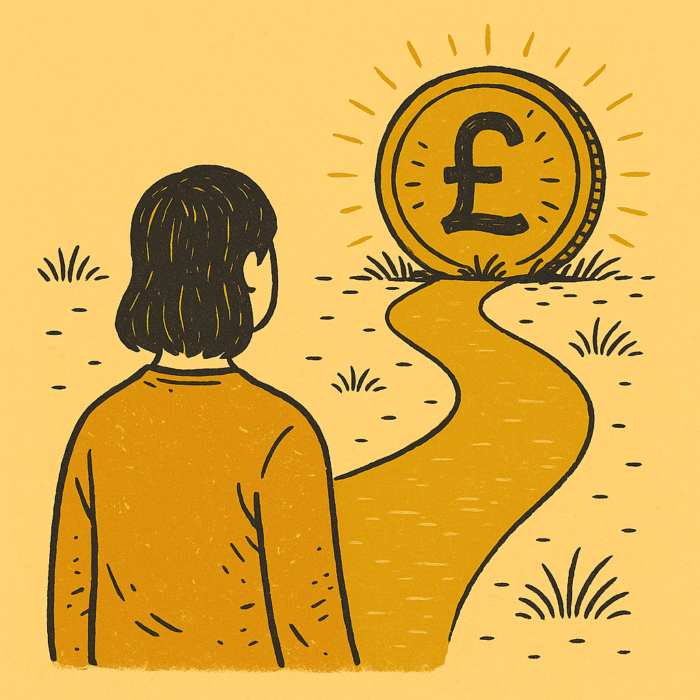Money is a powerful force in our lives, but its role goes far beyond paying bills or chasing material success. From the lens of Existential Analysis, money is not an end in itself but a means to support the deeper motivations that make life worth living: security, love, authenticity, and purpose. Our Mountain Framework helps us reflect on how money can either weigh us down like a heavy backpack—or become a guiding resource when used to strengthen relationships, pursue meaningful goals, and align our choices with our values.
Money and meaning – what is the balance between money and meaning in life? How much money makes us happy? What role does money play in your life? Can money be a key instrument during our meaningful path? Let’s investigate!
Money, Meaning, and Eudaimonic Well-Being
From the perspective of Existential Analysis, money itself is never the ultimate goal; it is a tool that can either support or hinder our journey toward a meaningful life. Viktor Frankl (2006) emphasized that fulfillment arises not from possessions but from living authentically, in alignment with values and purpose. Similarly, Professor Alfried Längle’s work on the Four Fundamental Motivations reminds us that well-being is rooted in space, relationships, self-authenticity, and meaningful engagement—not material accumulation (Längle, 2011).
Our Mountain Model can serve as a guide for reflecting on how money shapes our choices. The Landscape asks us to examine how we perceive financial realities: do we see money as scarcity, status, or opportunity? The Backpack symbolizes the weight of responsibility we carry, including financial burdens or the stress of comparison. The Guiding Stars—our values—help us redirect money’s role, ensuring that it is used in ways that enrich life rather than distract from it.
Instead of chasing hedonic pleasures—short-lived bursts of happiness through consumption—money can be invested in eudaimonic well-being, the deeper fulfillment that arises from meaning and growth. Research consistently shows that using financial resources to strengthen family bonds, friendships, community, and personal growth leads to higher and more sustainable well-being than spending on status or material goods. Dunn, Aknin, and Norton (2008), for example, found that spending money on others significantly increases happiness compared to spending on oneself. Similarly, Ryan and Deci (2001) describe eudaimonic well-being as living in accordance with one’s true self, emphasizing that resources like money contribute most when used to support autonomy, relatedness, and competence.
Practical applications of this insight are simple yet profound: supporting a child’s education, taking time for shared experiences with loved ones, donating to causes that matter, or investing in creative pursuits. Each of these aligns money with values—what our Mountain Model calls Guiding Stars. In this way, money becomes a servant rather than a master.
By consciously aligning financial decisions with meaning and values, we transform money into a pathway for purposeful living and greater eudaimonic well-being.
Does money make us happier?

When considering ‘what role does money play in your life’, it’s only natural to ask ‘does money make us happier?’
In short yes – money does make us happier, at least from a perspective of well-being. However, it’s not as much as you may think. According to Sonja Lyubomirsky money increases happiness when it creates an environment of well-being but once certain needs are met it has little effect on our happiness.
According to 225 studies on the benefits of happiness Sonja Lyubomirsky says that happy people have more friends and social support, are more resilient to stress and trauma, have stronger immune systems and also tend to make more money. Happy people are also more philanthropic and give more to charity.
So, money can bring more happiness to our lives and being happier can also create more money and social opportunities for us and more.
How much money makes us happy? When someone earns 75,000 USD per year then happiness tends to not increase as basic needs for survival and comfort have been met – this being related to an average in the United States.
People with more money do not tend to show more positive emotions throughout the day when compared to those with less on average. However, they will likely be happier overall with many of their needs being met such as health care, nutrition, increased leisure time and so on.
When your basic needs are not met, then money is shown to increase happiness significantly as you can then get many of your basic needs met. However, once your basic needs are met, an increase in money isn’t shown to make a huge increase in your happiness but it can increase happiness to a certain degree.
How Can We Find Meaning In Our Money?

Sonja Lyubomirsky suggests that when we buy a new car or ‘toy’ it provides short term hedonic pleasure but this is short lived and we adapt to this initial excitement. At Meaningful Paths we discuss a lot about aligning our day to day lives with our values and this begins to piece together meaning in our lives. If we spend our money to be with our family and close friends then we would be aligning with our values potentially more than buying a new car. If we spend money on charity and community good we will feel good from doing so. An important note is that although donating to charity is a kind thing to do it would not bring longer lasting from of well-being called Eudaimonic well-being unless it is part of our bigger picture. If we had a long term vision to create a positive community and we spent money on this then this would bring much more well-being and longer lasting well-being than buying a car or giving a donation to charity – both of which would provide short term happiness. An example of this could be to end homelessness in your city or to fund and coach a struggling youth development project.
Sonja Lyubomirsky also discusses how excessive spending of money and consumerism can also cause negative emotions.
Psychologist Tim Kasser did a 20 year study on peoples habits on consumerism. His findings showed that the 25 % of the group that were the biggest shoppers and most materialistic were the least happy within the group dynamic.
So, What Role Does Money Play In Your Life?
It is very important for us to assess how much money makes us happy? Money is not good or bad; it is a fuel for our lives in the way water is a fuel for our body. There is nothing wrong with being wealthy if that money has been earned with integrity and by doing good for others. If we can learn more about what deeper values align with us and increase our financial health and knowledge on money then we can become much happier and have a more solid foundation of well-being. If we focus most of our energy on material possessions which is a common theme in humanity and the media; then we may be surprised to find that we feel temporary happiness and unfulfillment in our lives.
By using money to spend more time with people and things that we value most and by using our money on community good we can find meaning and create longer lasting well-being in comparison to over consumption.
Conclusion
Ultimately, money cannot give life meaning on its own—it is how we use it that matters. When aligned with our Guiding Stars—our deepest values—money can help us nurture family bonds, invest in personal growth, and support communities. Research shows that spending on experiences, connection, and altruism brings longer-lasting fulfillment than material possessions. In this way, money becomes a servant, not a master: a tool that supports eudaimonic well-being rather than fleeting pleasure. Through the Mountain Framework, we learn to see money as part of our journey—a resource that, when directed by values and purpose, can help us climb toward a more meaningful life.
Wishing you health and well-being.
Thank you for reading.
David Chorlton; Meaningful Paths Founder.
References
- Dunn, E. W., Aknin, L. B., & Norton, M. I. (2008). Spending money on others promotes happiness. Science, 319(5870), 1687–1688.
- Frankl, V. E. (2006). Man’s Search for Meaning. Beacon Press. (Original work published 1946).
- Längle, A. (2011). The search for meaning in life and the existential fundamental motivations. Existential Analysis, 22(1), 25–40.
- Ryan, R. M., & Deci, E. L. (2001). On happiness and human potentials: A review of research on hedonic and eudaimonic well-being. Annual Review of Psychology, 52, 141–166.


One Comment
How to Set Goals During a Crisis | Psychreg
[…] dynamics that we believe will make us happy. An example of this could be believing you will be happy if you are rich or you may believe you would be happy if you looked similar to a fitness model. In reality, […]